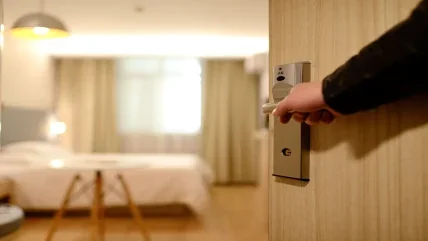
Providing quality service to customers is at the very core of the hospitality business under the most normal circumstances, but in these difficult times it has become even more crucial.
Whichever way you look at it, hotel guests will likely have an increasingly diverse set of requirements for the foreseeable future. While hoteliers will need to ensure they provide comfortable, safe spaces for people in a world that has been turned completely upside down, consumers are also going to need to adapt.
A combination of flexibility on the part of travellers and innovation on the part of the hospitality industry is, therefore, what is going to win the day for all concerned, but for hotels guest service is critical.
Covid-19 has made it a great deal harder to anticipate new and totally different needs. With things changing very quickly, requirements and expectations are more unpredictable. This is making it increasingly tough for hospitality businesses to deliver exceptional service and to adjust to fast-changing circumstances; and the limitations of what they are free to do make those difficulties even more apparent. At the end of the day, the hospitality sector is a service industry with a culture, which means building relationships and ensuring that guests enjoy a special moment and feel they are the centre of everything.
In order to adapt to customers’ changing lifestyles, hotels across the board have done a sterling job in remaining in touch with their customers and building relationships through many different online initiatives, ranging from cocktail classes and bedmaking workshops to yoga classes given by staff. Now that travel is beginning to open up and people are freer to move around the world, hotels are also looking at other adventurous options such as providing long-term stays with a range of solutions. Certain countries, such as the UAE, have got the message loud and clear and are offering special visas for expats wishing to work remotely from hotels. Other hotel chains are offering deals for long-term stays, with one brand even offering tutorials for kids who are in school remotely.
Seamless hospitality experience
Efficient, personalised service is non-negotiable. Aside from working out how to increase safety measures without guests feeling like they are in a hospital, elements such as fast internet connectivity, rooms suited to having conversations or Zoom meetings in complete privacy, special recording equipment, green screens, microphones and technical support to ensure continued efficiency are a must. So too is the ‘softer’ side of things, such as enhanced spa treatments or other services that can be delivered in rooms and suites to avoid the need for the inhabitants to expose themselves to external risk factors. Not to mention services for children – if a family is quarantining.
In a time when so many services outside hotels are unavailable, guests are happy to upgrade and spend more money inside hotels, whether they be fine dining, spa experiences or a range of other optional extras. Many people are tired, stressed and need a little bit of pampering. This reality is also fostering the significant ‘staycation’ trend, with people remaining in their home countries (and even cities) while enjoying a romantic weekend at a hotel. Some are even staying in hotels simply to be able to use the spa or restaurant, services otherwise unavailable amid the current restrictions. This is proving quite a game changer for hotels that did not previously cater to a local clientele.
In addition to innovation and investing in sustainable practices, much of the successful management of the so-called ‘new normal’ – in terms of what constitutes guest service – can be attributed to a keen focus on training initiatives designed to assist institutions to prepare for the future. Against this background, and with the knowledge that the world can be turned on its head in just a matter of days, hospitality schools, along with other educational institutions, will likely have to amend their curriculums to include greater focus on teaching students to prepare for the unexpected.






